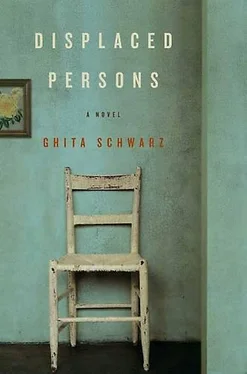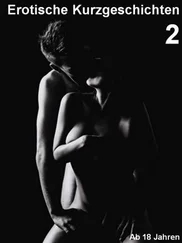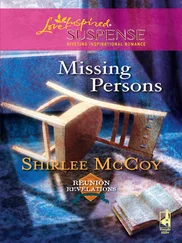The camp had changed since he and Pavel had first received their documents and food cards. The barracks were new, rebuilt, each with a clean entrance, and some had gardens in the back where refugees tended vegetables and trimmed mint weeds. Inside, Chaim knew, the bodies were still crowded in and stifled, the latrine buildings spilling with overuse. But some of the more settled refugees had their own apartments inside the camp, their own new families. When they stamped his new card, a man and a woman stood behind him with a newborn. He had turned to look at it, and reached out to touch it in its gray blanket, but the mother had pulled her arms back and drawn the child in closer to her chest, then murmured something softly at Chaim.
He did not hear her words. More than once a man in the print shop had shouted at him, What is wrong with you? You hear like an old man! It was true. Often he got up to leave his workstation because the thickness in his hearing so distracted him; he felt his head to be muffled, wrapped in a blanket that blocked out the noise but also warmed him. It was true; he heard like an old man, in fits, the result, he feared, of a long-ago blow to the side of the head that even now on occasion made him sense a ribbon of pain, the ghost of a bruise, moving through his skull just before he fell asleep. He should be brave and go to the camp doctor. He should be brave.
Eventually he did make his way into the line of sick people and new arrivals at the clinic. The nurses and doctors themselves were clean and quick. He whispered his complaint in his rehearsed English to a broad redheaded woman.
“I do not hear,” he whispered. The words seemed loud inside his mouth, but he knew he spoke softly. “Hitted in head.”
The nurse narrowed her eyes, then pulled him toward her and looked inside one ear, then the other. Then she laughed.
“Nothing a good cleaning won’t fix, my dear!” She grabbed a bright metal instrument and tilted his head toward her breast, the better to scoop out the wax and dirt.
He walked out of the clinic with a soreness at his ears and temples, but within a day he heard more clearly. The world did more than become louder; it changed. Fine noises were easier to pick up, and ordinary speech seemed suddenly sharp and blared, as if the background buzzing had been cleared from a wartime radio broadcast. In the house he could hear the soft rasping under Fela’s words; he could make out the clucks Pavel made under his breath as he played cards. In the last week of his work at the print shop the noises of the ink machines chugged in an even rhythm, a low drumbeat to the tune his workmate hummed to himself.
He came to the school with a songbook of freshly printed Yiddish tunes.
HE WATCHED HIMSELF AND his reactions around the children when they played roughly or became upset. A child’s cry could scratch at him, a table knife scraping a half-closed wound. But he pushed his discomfort down. It was possible, he thought, that the infirmary had taken too much out of him. Had they removed a barrier that had helped him to walk around in some sort of peace? But nothing showed. Sala, the classroom teacher, patted his shoulder. You have a way, she said.
It was true, the children liked him. They spoke to him in Polish when they did not want the teachers from Germany and Palestine to understand and in Yiddish when they did not want the soldiers from Britain and America to understand. Others in the camp looked at the little ones as foreigners, to be feared. He could see in the camp streets a refugee take in his breath as the orphan beside him stumbled and cried out in pain. He accompanied a child who had fallen to the infirmary; a bone from her elbow pushing up, almost ready, Chaim thought, to poke through the skin. She had whimpered as he carried her there, but broke into full wails as she saw the lines of gray adults lifting their arms to be sprayed with disinfectant. Even in the weeks since he had had his ears cleaned the clinic had become cleaner, whiter. He looked at the floor, its new bright tile.
Tell her to stop! Chaim heard from the line. A man’s voice, high, increasingly desperate. Tell her to stop! Stop! Tell her to stop!
Ssh, he said to the little girl. Ssh.
It was a warm day, and the clinic was full. He could hear shouting in English, not angry, just the nurses trying to make the refugees understand by speaking louder. Usually there were more Jews at the clinic; it was said the lead doctor was a refugee herself. But there was a protest in the camp center today, and perhaps the translators and aides had disappeared for the afternoon to attend it, or just to rest, just as Chaim liked to disappear and rest.
La la la, he whispered to the child in his arms.
She tried to become more soft. Still the tears and coughing and sniffling continued. The man behind them muttered and cursed. But Chaim pulled his belly in, breathed out. He concentrated his hearing on the specific tones of the crying. Yes, one could hear the difference between a child weeping over a twisted arm and the screaming from before. These cries were everyday cries, temporary griefs, the kind of casual suffering that occurred in a houseful of family.
He could protect her, even for an afternoon, while waiting in the line at the clinic. He could watch over her. He hummed a short tune in the little girl’s ear.
IN THE LINE WITH her father, Sima did not cry. She heard the whimpering and the sniffling, but she herself was silent. She stood still, waiting, hearing the crying child, staring at the uniforms of the men at the sides of the clinic, the men who kept order in their green and brown clothing. They did not shout or push; she could not even see guns. These men were different, they help us, her father said, they were different from the Germans and Russians, different from the Poles in their stone-colored uniforms who caused her father to draw in his breath. No, these men were different, British. It seemed they did not quite command the clinic; they puttered about, got up and sat down when the nurses called them, not when they themselves desired to move. Still, you could not let a soldier see you afraid, her mother always said. It brought out something ugly. What was the ugly thing? Sima had wondered, imagining mud and blood. She held herself upright, one hand in her father’s, who did not seem to notice the noise.
A child is crying, she whispered.
Her father did not answer. Perhaps he was afraid. He was frequently afraid, he said. She looked over at her mother. Her mother was not afraid. Her mother was sick. She leaned on Sima’s father, her face alternately flushed and pale, her breath warm and labored. She looked as if she were concentrating, perhaps trying to understand the shouts of the soldiers, perhaps just trying to remain cool in the crowded waiting area. Sima’s father was perspiring and craning his neck around the line, trying to see where they led the families ahead of them, whether they were separated for the examinations required of every new arrival to the camp.
The child’s crying became more distant; it had been led away. And then a soldier’s hand pointed toward them and drew back: their turn. They moved behind a curtained area. But the soldier’s arms kept moving, and he spoke, gesturing, pointing at her and her mother. He was telling Sima to go with her mother.
Sima’s mother began answering in Polish. No, no, she should stay with her father. Just for now. I’m not feeling so well. Then she repeated it in Yiddish.
The soldier did not understand. He gave a gentle push to Sima’s shoulders, trying to move her toward her mother. But Sima stood still, made herself heavy, kept her hand in the fast grip of her father.
The soldier threw up his arms. “Henrietta!” he called. But no one came.
He began talking in long streams, his voice strained and insistent, a false calm. He was working hard to be kind, Sima could see that. Her parents could see that too, she observed, both nodding with nervous smiles. Again the soldier made a movement, gesturing with a smile that she move away from her father. But Sima did not move. She was not to breathe her mother’s air. She was to be healthy and strong, at least enough to enroll in the camp school as soon as all this with the medical exams and the food coupons was sorted out, the school which Sima’s mother had heard was led by Jewish teachers and Hebrew tutors. Sima was almost seven; she had to be strong.
Читать дальше











